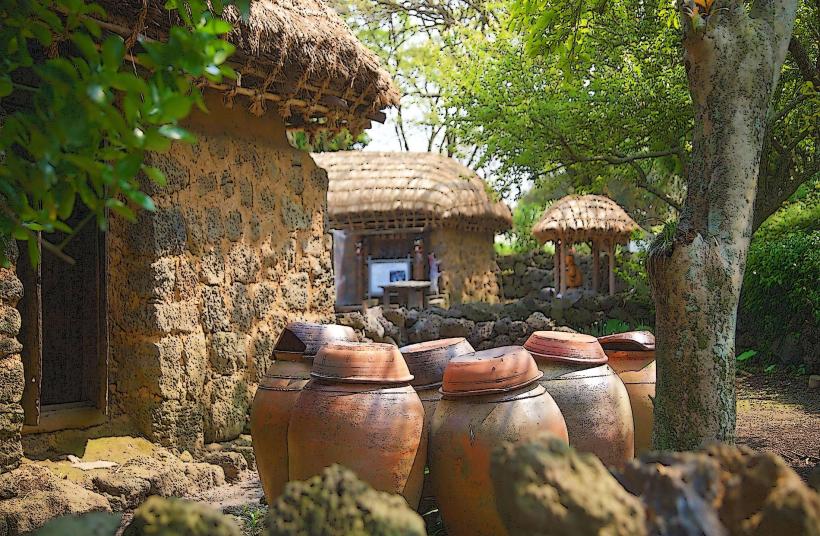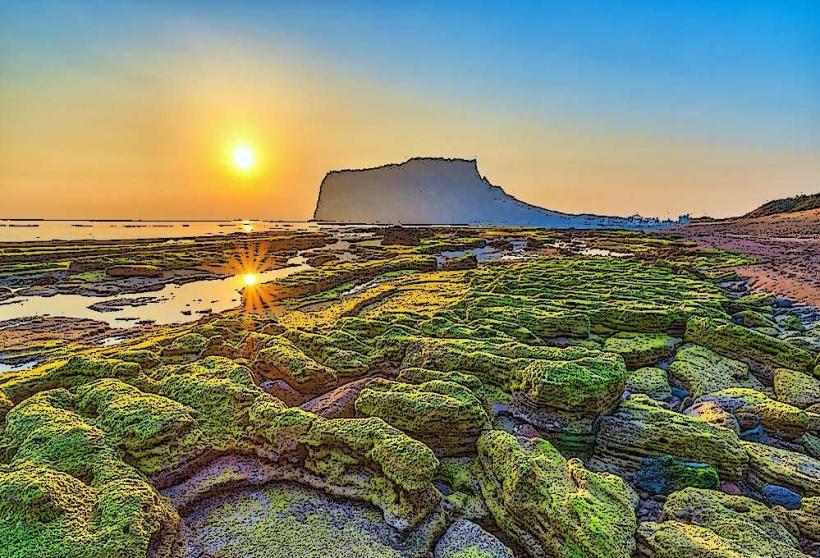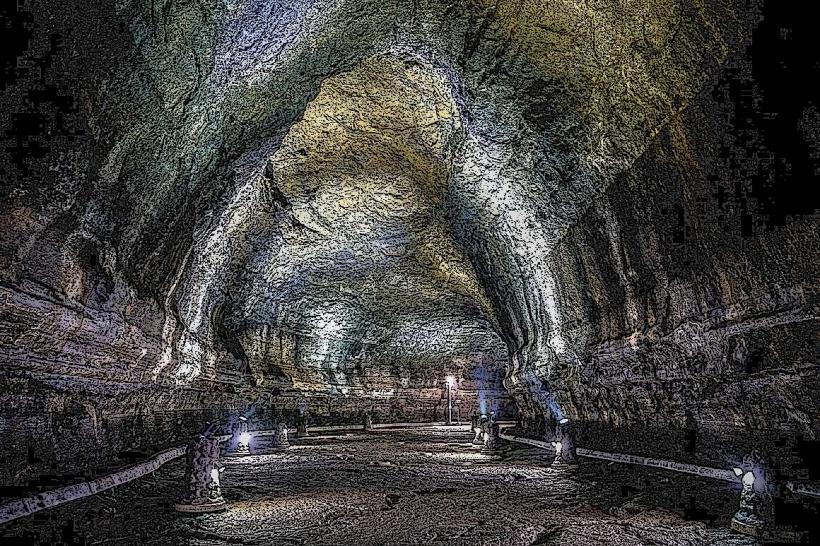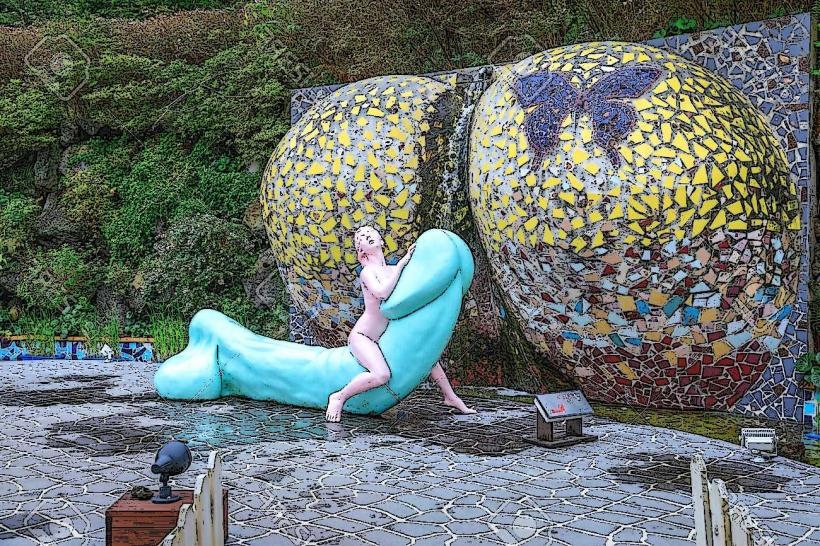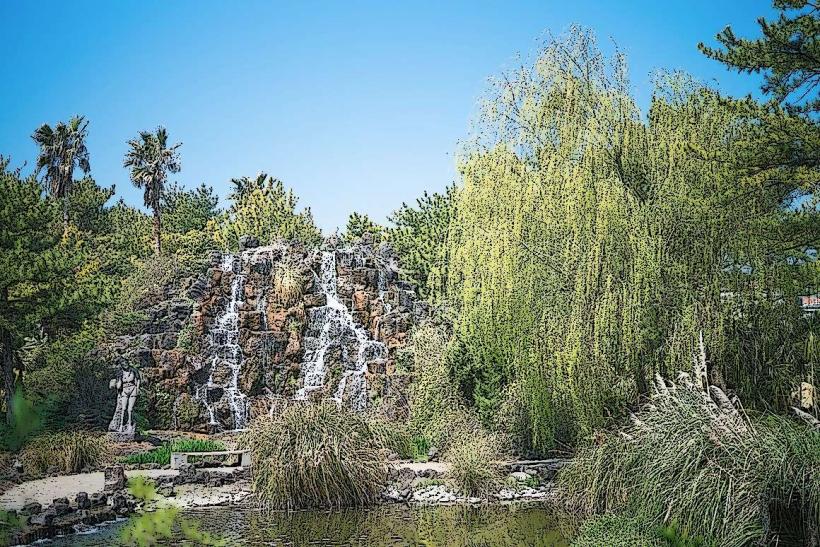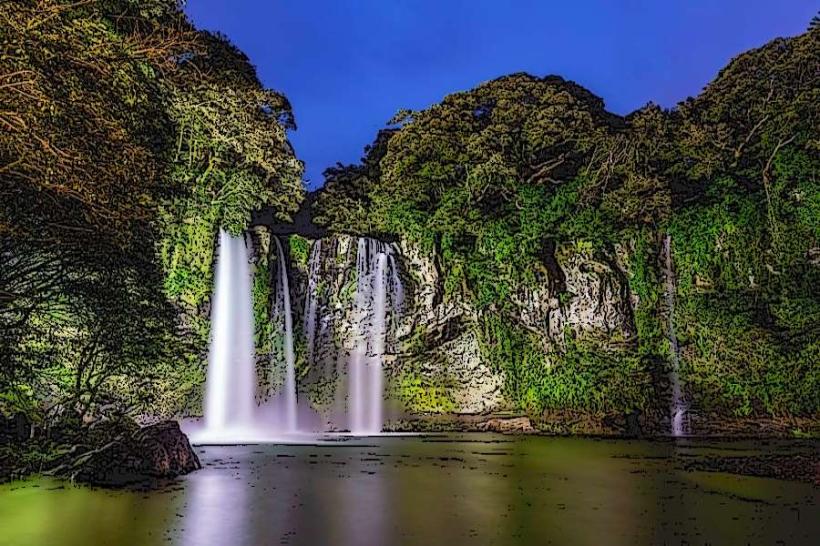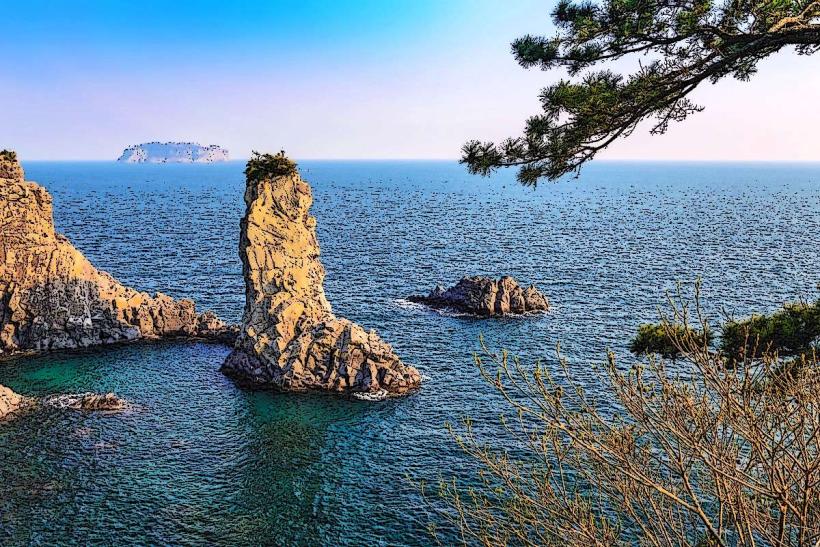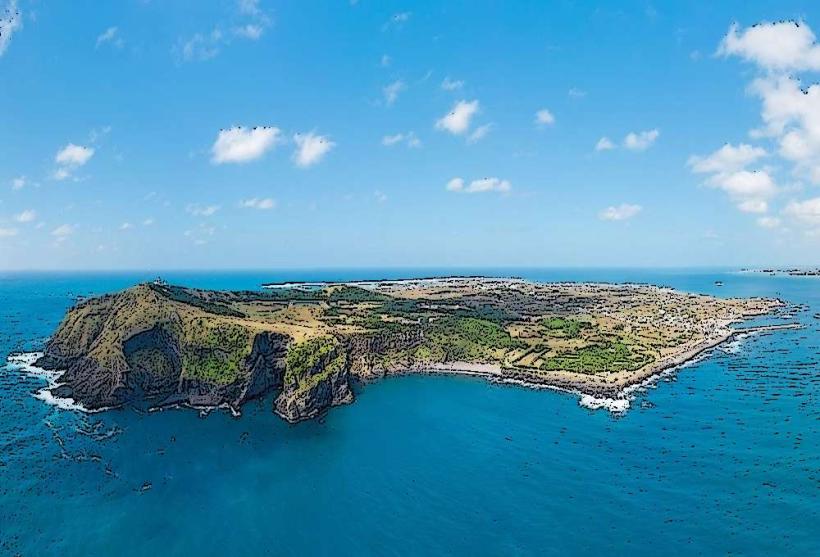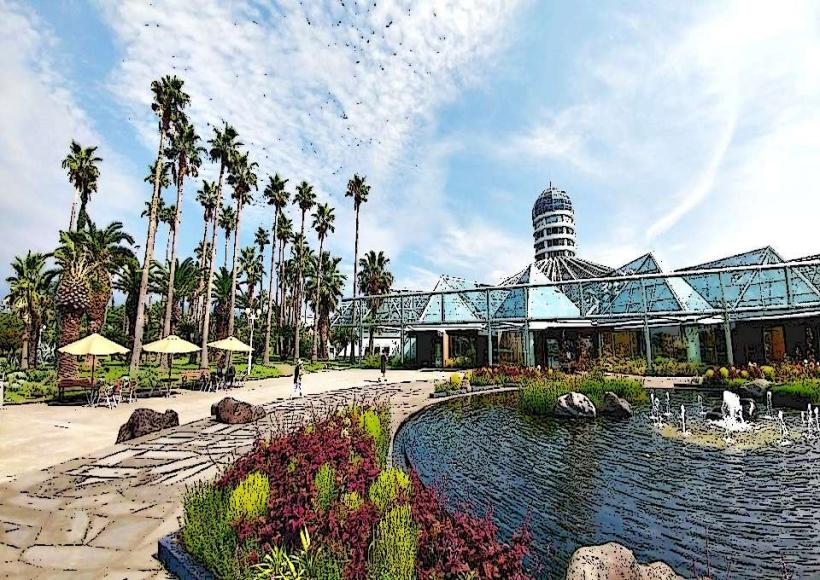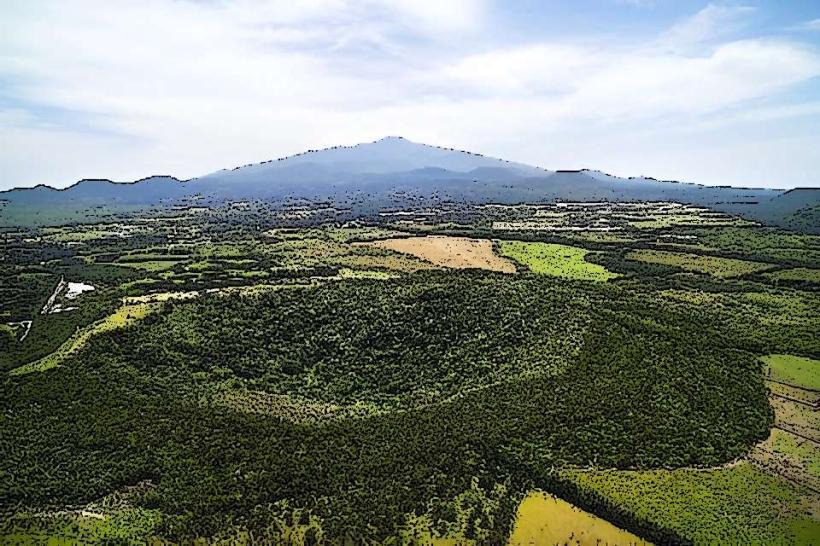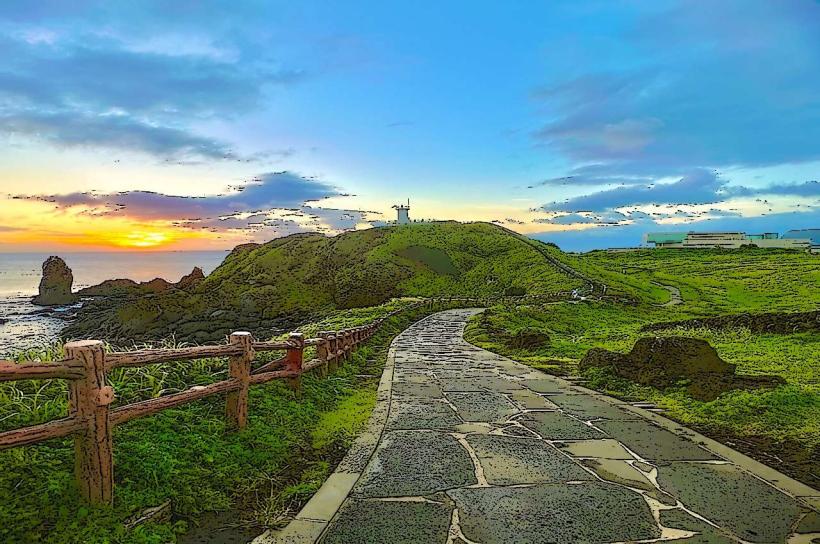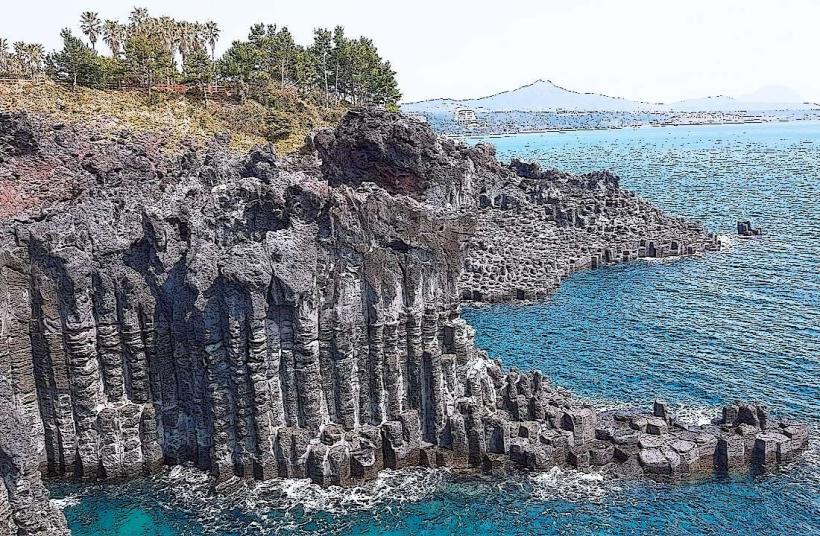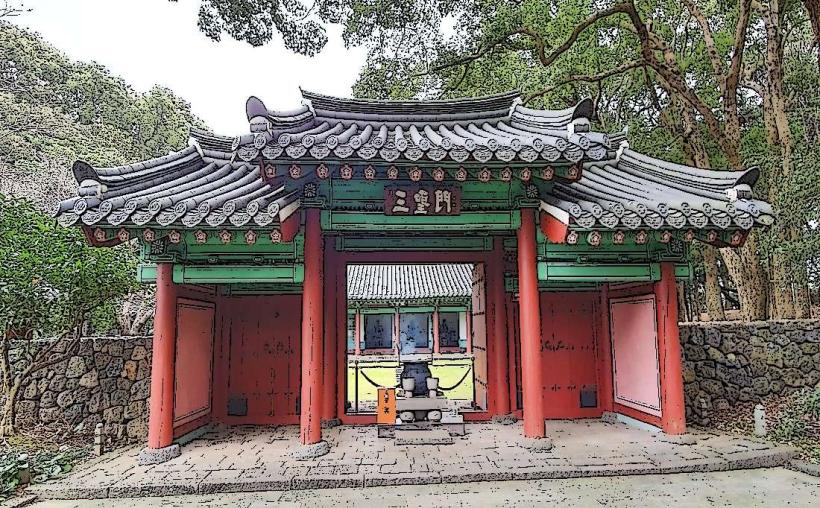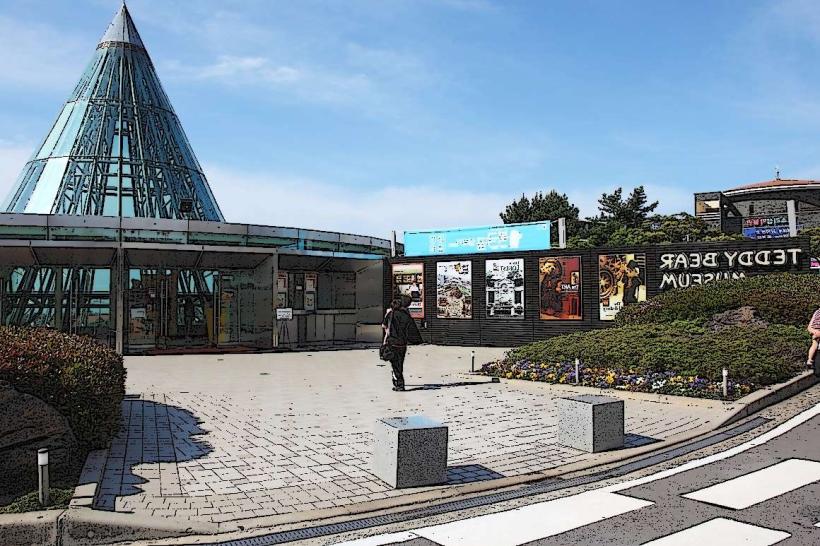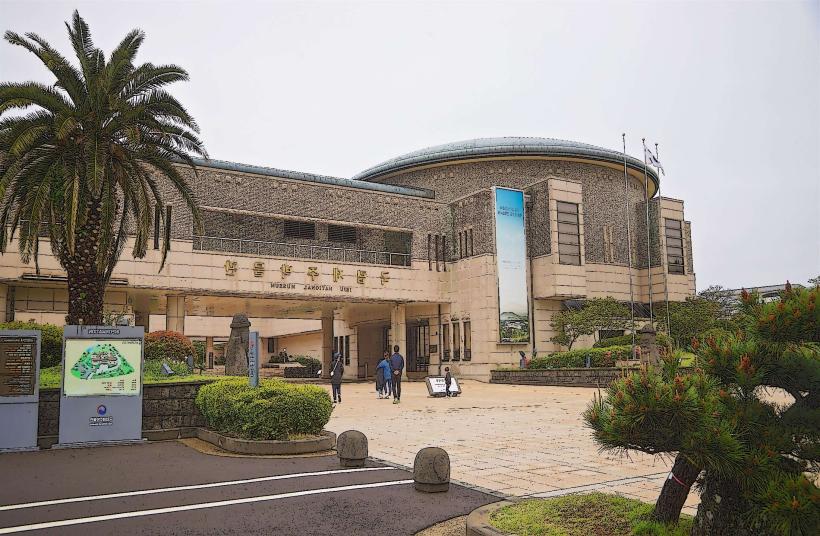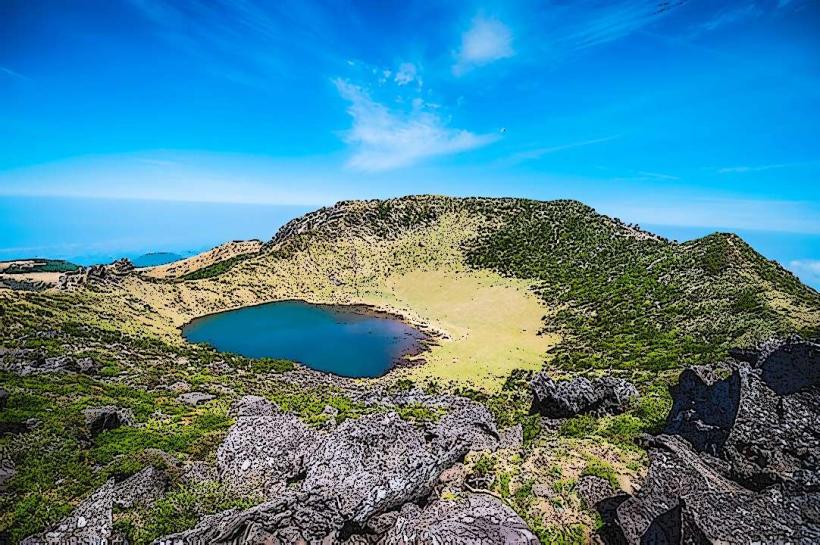Information
Landmark: Jeju Stone ParkCity: Jeju Island
Country: South Korea
Continent: Asia
Jeju Stone Park, Jeju Island, South Korea, Asia
Jeju Stone Park is a fascinating cultural and natural attraction located in Jeju Island, South Korea. The park is dedicated to Jeju's unique geological features and the island's rich cultural history, with a particular focus on stones, which have held significant cultural and spiritual meaning for the people of Jeju for centuries. The park offers visitors an immersive experience into the island's geological history, traditional folklore, and natural beauty.
Overview
- Location: Jeju Stone Park is located in the Aewol area of Jeju, about 25 kilometers from Jeju City. It's situated near the base of Hallasan Mountain, surrounded by natural landscapes that enhance the atmosphere of the park.
- Established: The park was opened in 2004 and has since become a popular destination for tourists and locals alike, offering both educational and cultural experiences related to Jeju's unique geological formations and stone traditions.
Key Features and Attractions
Jeju's Geological Features
- One of the primary focuses of Jeju Stone Park is the island's unique volcanic geology. The park features exhibits and displays that explain the formation of Jeju Island as a volcanic island, with an emphasis on the island's lava flows, lava tubes, and stone formations.
- The stone sculptures, rock formations, and volcanic stones displayed throughout the park help illustrate how the volcanic activity that formed Jeju Island continues to influence the island’s landscape and culture.
- The park provides an in-depth look at Jeju's volcanic history, offering information about the island’s geological processes, the formation of lava tubes, and the unique properties of the Jeju basalt rock.
Stone Statues and Sculptures
- One of the most striking features of Jeju Stone Park is its impressive collection of stone statues and sculptures. These stones are an essential part of Jeju's cultural heritage, as stones have been historically used to mark significant locations, honor deities, and as symbols of protection.
- The park features traditional Jeju stone statues known as Dol hareubang (stone grandfather statues), which are iconic symbols of Jeju. These stone statues, often believed to protect against evil spirits, can be found throughout the park.
- Many of the statues and sculptures in the park depict legendary figures, such as gods, ancestors, and mythical creatures, reflecting Jeju’s strong cultural and spiritual beliefs centered around stones.
The Four Elements Garden
- A unique feature of Jeju Stone Park is the Four Elements Garden, which explores the four elements of nature: earth, water, fire, and wind. This garden offers a serene atmosphere where visitors can walk through themed sections that reflect these elements and their connection to Jeju’s natural landscape.
- The earth section features stone sculptures and traditional stonework, while the fire section highlights Jeju’s volcanic history with fire-related exhibits. The water section showcases Jeju’s abundant rainfall and water sources, and the wind section represents the island’s coastal winds, which are essential to its climate.
Jeju Folk Culture and Folklore
- In addition to its geological and natural exhibits, the park also features displays that explore Jeju’s folklore and traditional culture, specifically its strong connection to stones. Jeju residents have long viewed stones as symbols of protection, good fortune, and spiritual power.
- The Jeju folk culture section displays traditional tools, objects, and everyday items made from stone or associated with stone rituals. Visitors can learn about how stones were integral to Jeju’s agricultural practices, shamanistic rituals, and even funeral customs.
The Stone Museum
- One of the highlights of Jeju Stone Park is the Stone Museum, which houses a wide variety of stone artifacts, geological specimens, and historical items related to Jeju’s rock and stone traditions. The museum offers detailed information about the role of stones in the history and development of Jeju, as well as their significance in local myths and legends.
- The museum also displays an extensive collection of stone tools, pottery, and other artifacts from Jeju’s past, providing visitors with a deeper understanding of how stones were used in everyday life.
Walking Trails and Scenic Views
- Jeju Stone Park offers several walking trails that guide visitors through the park’s natural landscapes. These paths offer scenic views of the surrounding volcanic formations, Hallasan Mountain, and the lush vegetation typical of Jeju.
- The park’s outdoor areas are peaceful and serene, providing visitors with an opportunity to enjoy the natural beauty of Jeju while learning about its geological and cultural heritage.
Cultural and Educational Programs
- Jeju Stone Park offers various educational programs for visitors, especially school groups and families. These programs often focus on Jeju’s geological features, stone culture, and folklore, allowing visitors to engage with the park’s exhibits in a hands-on way.
- The park also hosts workshops, where visitors can learn about traditional stone-carving techniques or create their own stone-related art projects.
Jeju’s Traditional Stone Carving
- The park features an exhibit on traditional stone carving, showcasing how local artisans have created detailed stone works throughout Jeju’s history. Visitors can observe how the island’s basalt stone was used to create everything from sculptures to building materials.
Seasonal Events and Festivals
- Jeju Stone Park hosts several seasonal events and festivals throughout the year, celebrating Jeju’s traditions and cultural heritage. These festivals may include traditional music and dance performances, stone-related competitions, and cultural demonstrations.
- The park is also known for its ceremonial events that celebrate the island's spiritual connection to stones, often featuring shamanistic rituals or stone blessing ceremonies.
Best Time to Visit
- Spring (April to June): Spring is a great time to visit Jeju Stone Park, as the weather is mild and pleasant. The island’s flowers and plants begin to bloom, adding color to the park's landscapes.
- Autumn (September to November): Fall is another wonderful time to visit, with cooler temperatures and vibrant autumn foliage. The park’s natural surroundings are especially beautiful during this season.
- Summer (July to August): Summer can be hot, but it’s still a good time to visit, especially for those interested in experiencing Jeju’s lush vegetation and vibrant outdoor spaces.
- Winter (December to February): Winter is the quietest season for visiting Jeju Stone Park, which may appeal to those seeking a peaceful, less crowded experience. However, be prepared for cold temperatures.
Visitor Information
- Entrance Fee: The entrance fee for Jeju Stone Park is usually around 5,000–7,000 KRW for adults, with discounts for children and groups.
- Opening Hours: The park is typically open daily, from 9:00 AM to 6:00 PM, but it’s a good idea to check for any changes in opening hours during holidays or special events.
- Parking: There is ample parking available for visitors arriving by car.
- Facilities: The park has restrooms, cafes, and a gift shop where visitors can purchase stone-related souvenirs, local handicrafts, and traditional items.
Conclusion
Jeju Stone Park is a unique and educational destination that offers visitors a deep dive into the island's geological and cultural heritage. With its fascinating stone sculptures, exhibits on volcanic geology, traditional Jeju folklore, and beautiful outdoor spaces, it provides an immersive experience into the cultural significance of stones on the island. Whether you’re a nature lover, history buff, or cultural enthusiast, Jeju Stone Park offers a captivating journey into one of the most iconic aspects of Jeju’s identity.

